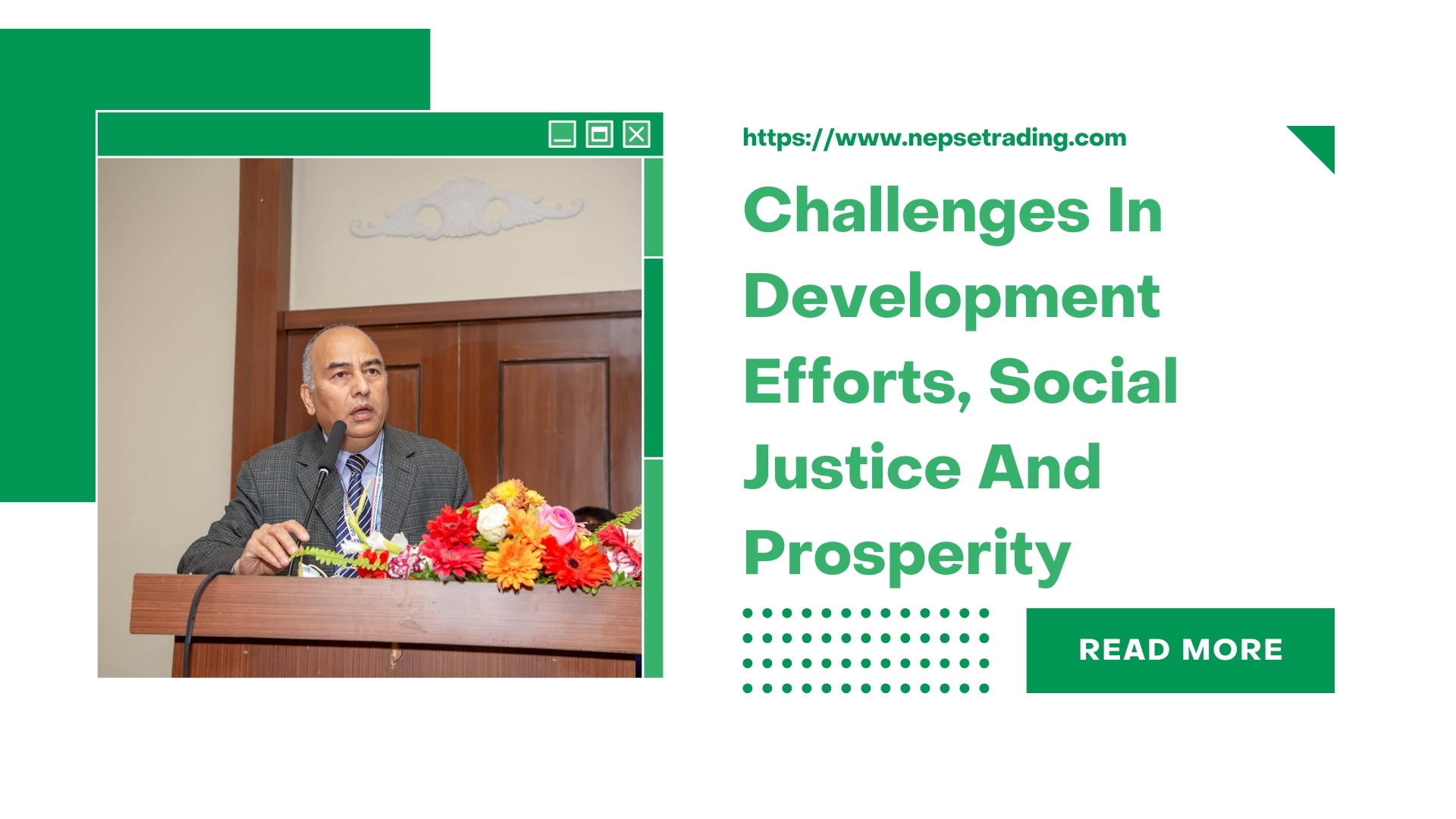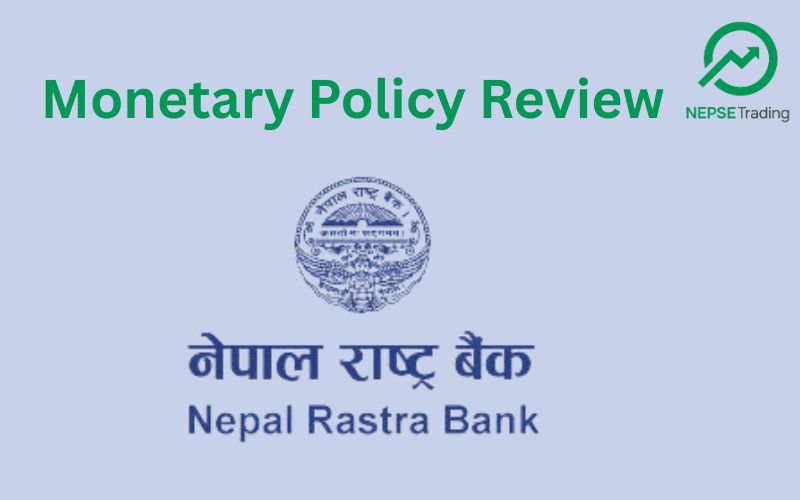By Dipesh Ghimire
Challenges In Development Efforts, Social Justice And Prosperity

The proposed budget for the fiscal year 80/81 was NPR 1751 billion, but it was revised down to NPR 1530 billion. Similarly, the proposed budget for the fiscal year 81/82 of NPR 1860 billion was passed by the parliament but faces implementation challenges. It is concerning that, despite a proposed foreign grant of NPR 50 billion for the fiscal year 80/81, only NPR 3 billion was received by the end of Jestha.
We have failed to gain credibility abroad and have not been able to raise other projected resources. This issue is serious. The inability to mobilize expected revenue, to spend capital expenditure, to implement proposed domestic and foreign loans, and the increasing burden of debt repayment are challenges to our journey towards prosperity. Today, we will discuss the country's economy and development issues. The socialist-oriented governance system mentioned in Nepal's existing constitution is fundamentally liberal, open, and competitive in character. However, there are implementation problems despite the provisions in the constitution. We have analyzed the challenges seen in development efforts.
Poverty and Inequality
Poverty and inequality are major obstacles to Nepal's development. While people in rural areas lack adequate facilities and opportunities, urban residents enjoy more benefits. Economic inequality creates social imbalance. For example, access to basic health and education is limited in rural areas, making it difficult to break the cycle of poverty.
Education and Health
Lack of education and health services is another major obstacle to development. Rural schools lack basic facilities. The government must provide sufficient resources to improve the quality of education. Access to health services is limited, causing problems for rural residents.
Employment and Business
The lack of employment and business opportunities has held Nepal back economically. The youth are unemployed, and their potential is not being utilized. It is necessary to improve the business environment and promote self-employment. Unemployment forces the youth to migrate abroad, leading to a brain drain. The government must create job opportunities to utilize the youth for the country's development.
Infrastructure Development
There is still much work to be done in infrastructure development. Investments are needed in transportation, communication, and electricity. Special infrastructure development programs are required for rural areas to ensure development reaches every village. Due to Nepal's geographical diversity and challenges, infrastructure development is tough. Access to transportation and communication is limited in rural areas. The government and private sectors must work together to improve this.
Good Governance and Transparency
Good governance and transparency are crucial for development. Corruption hinders development efforts. Administrative processes need to be simplified and made transparent to build public trust in the government. Corruption is widespread in Nepal, obstructing development. Strict measures must be taken to control corruption and ensure administrative reforms. Government and non-governmental organizations should work together to enhance transparency and accountability.
Environmental Protection
Environmental protection is a significant issue that must advance with development. It is necessary to maintain environmental balance and ensure the sustainable use of natural resources. Development strategies should consider the effects of climate change to provide a healthy and safe environment for future generations. Nepal is rich in natural resources. Failure to protect and manage these resources can lead to environmental crises. Joint efforts by the government, private sector, and civil society are needed to face climate change challenges and maintain environmental balance.
Social Justice
Ensuring social justice is the foundation of development. Equal access to opportunities and facilities must be guaranteed for all classes and communities. Attention should be given to gender equality, ethnic equality, and social inclusion, ensuring every segment of society benefits from development. Nepal is a multi-ethnic, multi-lingual, and multi-cultural country. Without ensuring the rights and opportunities of all, development is not possible. Special attention must be given to gender equality and social inclusion.
Development of Crony Capitalism
Since the early 1980s, Nepal has faced high trade and balance of payments deficits, increasing budget deficits, inflation, and decreasing foreign currency reserves. Economic reforms in 1985 aimed to reduce the state's role and adopt a market economy. Trade, financial, and exchange system liberalization began during this period. The democratic government's policies led to the destruction of national industries, unemployment, a diminished role of the state in the economy, and the rise of crony capitalism.
Impact on Nepal's Path to Socialism
Nepal's current situation is characterized by competitive politics, an open society, an economy dominated by the private sector, public finances reliant on external assistance, dependence on foreign investment for high investment, and a weak public sector in the economy. At the same time, there is a desire for rapid transition to socialism with high economic growth, social justice, universal social security, and prosperity. The implementation of the civil code, full implementation of constitutional rights, development of a responsible private sector, robust state presence in basic social services, development of economic infrastructure, responsible state role in social protection, access to production means for the majority, national industrial development, and equitable production relations form the roadmap to socialism.
Forestry
One key area for reform is forestry. Proper utilization of forest resources has not yet been achieved. There is a need for policies to utilize forest products. The economy is significantly impacted by the import of timber products. One way to stop imports is to utilize forest products effectively.
Education
The inability to improve students' learning levels is the most critical issue in Nepal's education system. The failure to link education with the economy is another serious problem, resulting in minimal returns on government investments from schools to universities. Due to these quality issues, education has not contributed significantly to Nepal's economic growth. There has been insufficient research and public debate on these issues, which is another unfortunate aspect for Nepal.
Concrete Steps for Prosperity
Considering all these issues, Nepal must advance its development efforts. Concrete steps are necessary for social justice and prosperity, ensuring all Nepalese benefit from development. Active participation and cooperation from all sectors can advance the country towards prosperity. By reviewing the current economic model and shifting focus from relying on imports, VAT collection, and remittance-based revenue to promoting green economy based on Nepal's unique characteristics, such as water, forests, agriculture, herbs, wildlife, and environmental tourism, we can build a self-sustaining economy. Consolidating scattered capital into national capital and constructing an economy based on our distinctiveness can guide us towards a socialist-oriented economy.
To advance Nepal on the path of social justice and prosperity, the government and stakeholders must take concrete steps to address these challenges. Realizing the dream of a prosperous Nepal requires united efforts from all sectors. Special attention must be given to education, health, employment, infrastructure, good governance, environmental protection, and social justice for the country's overall development. This is the only way we can achieve the goal of a prosperous Nepal and happy Nepalese.
Dr. Dinesh chandra Devkota, Member of State Assembly and former Vice Chairman of National Planning Commission









